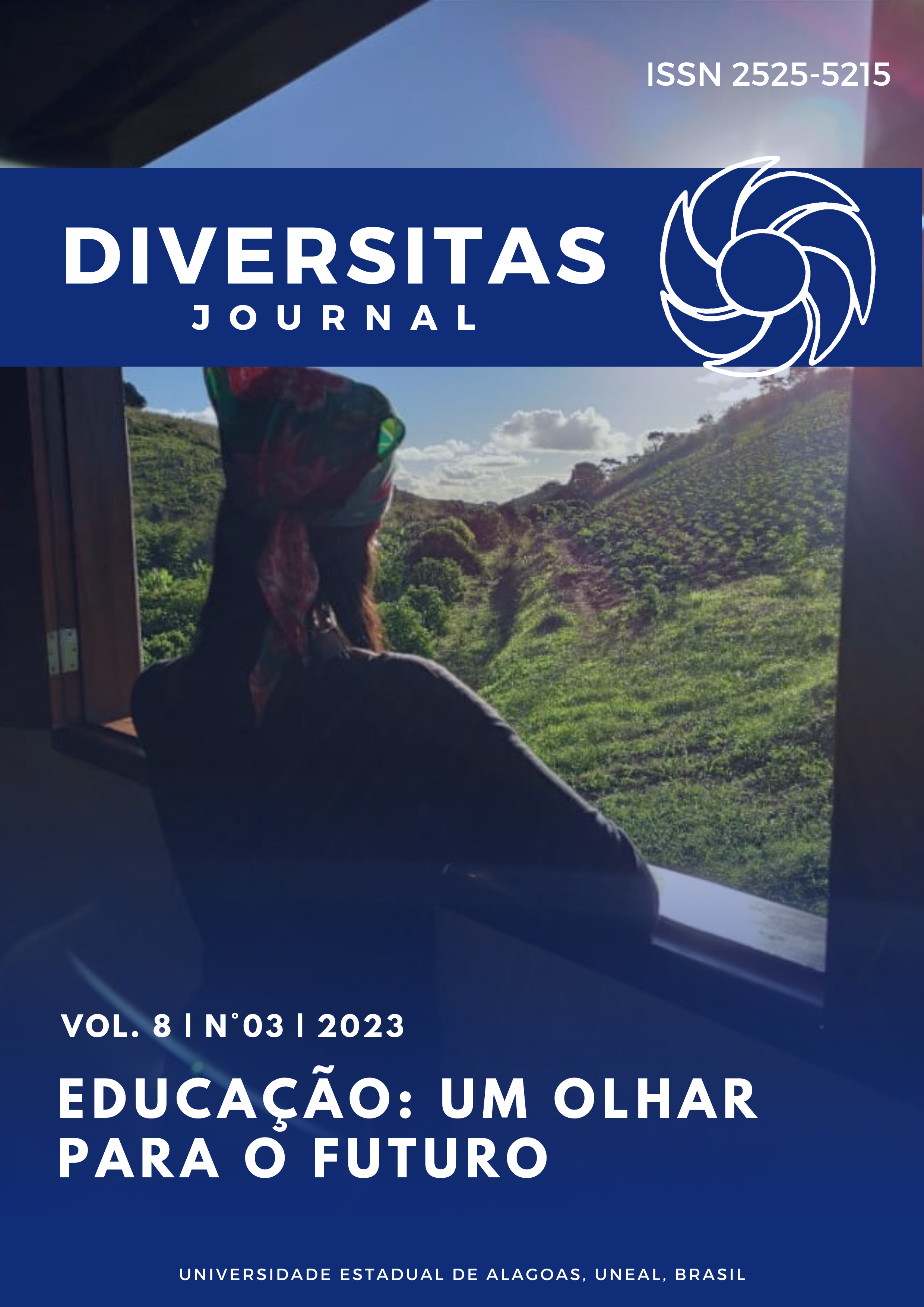An analysys of the IFPB Campus Picuí and its socioeconomic relevance for the Eastern Seridó paraiban
DOI:
https://doi.org/10.48017/dj.v8i3.2520Keywords:
IFPB, Education, Development, Public policiesAbstract
As part of my dissertation this work aims to analyzethe expansion and internalization of the Federal Institutes of Education, Science and Technology as the effectiveness of a public policy in education, through the relationship with local and regional development. We aim, therefore, to analyze the implementation of the Federal Institute of Education, Science and Technology of Paraíba (IFPB) in the Picuí-PB campus and its social and economic impacts on the micro-region of the Seridó Oriental Paraibano, considering the professional training of young people and the insertion of graduates in the regional labor market in the period from 2009 to 2020. The methodologic al procedures and instruments of said research, as well as the stages of the bibliographic and documentary survey, field research and data collection, how the organization and construction of the analyzes took place based on the quantitative and qualitative categories. As the studies deepened, we realized that the internalization of the Federal Institutes has not only brought professional qualification, entry into the job market, or access to universities, but a whole set of beneficial actions made possible by the application of public policies and that has culminated with an immeasurable cultural and intellectual gain, unable to be quantified in this research, only. We understand, therefore, that the implantation of the Federal Institutes enables a qualitative advance from a singular path, a project of a nation that understands education as a commitment to transformation and the rise of knowledge, of goals capable of transforming social life.
Metrics
References
Andrade. A. F. B. (2014). Os Institutos Federais de Educação Ciência e Tecnologia: uma análise de sua institucionalidade. Brasília: UnB.
BRASIL. (1909) Decreto 7.566 de 23 de setembro de 1.909. Cria as Escolas de Aprendizes Artifices, para o ensino profissional primário e gratuito. Disponível em https://www2.camara.leg.br/legin/fed/decret/1900-1909/decreto-7566-23-setembro-1909 > Acesso em 20 Dez 2020.
BRASIL. (1937) Constituição de 10 de novembro de 1937. Constituição da República Federativa do Brasil. Brasília, DF: Senado Federal: Centro Gráfico
BRASIL.(1994) Lei no 8.948, de 08 de dezembro de 1994. Dispõe sobre a instituição do Sistema Nacional de Educação Tecnológica e dá outras providências. Brasília: 1994. Disponível em<http://www.planalto.gov.br/ccivil_03/leis/l8948.htm> Acesso em 13 Nov 2021
BRASIL. (2008) Lei 11.892, de 29 de dezembro de 2008. Institui a Rede Federal de Educação Profissional, Científica e Tecnológica, cria os Institutos Federais de Educação, Ciência e Tecnologia. Brasília: 2008. Disponível em:<http://www.planalto.gov.br/ccivil_> Acesso em 20 jun de 2021
BRASIL (2009) Centenário da Rede Federal de Educação Profissional e Tecnológica. Brasília: Ministério da Educação, 2009. Disponível em <http://portal.mec.gov.br/setec/arquivos/centenario/historico_educacao_profissional.pdf> Acesso em 15 jun. 2020.
IBGE. (2019) Instituto Brasileiro de Geografia e Estatística. Cidades. Disponível em: <https://cidades.ibge.gov.br/brasil/pb>. Acesso em 14 dez. (IBGE 2021)
IBGE. (2019) Instituto Brasileiro de Geografia e Estatística. Cidades. Disponível em: https://cidades.ibge.gov.br/brasil/pb. Acesso em 20 dez. 2021.
IBGE. (2020) Instituto Brasileiro de Geografia e Estatística. Cidades. Disponível em: https://cidades.ibge.gov.br/brasil/pb/panorama. Acesso em 20 dez. 2021.
Caires, V. G; Oliveira, M. A. M. (2016). Educação Profissional Brasileira: da Colônia ao PNE. Petrópolis, RJ: Vozes.
Gil, A. C. (2008). Métodos e Técnicas de Pesquisa Social. 6ª edição. São Paulo - SP. Atlas.
IFPB. (2020). Plano de Desenvolvimento Institucional PDI: 2020-2024. [S.L]. Disponível em: <https://editor.ifpb.edu.br/institucional/pdi> Acesso em 11 jul. 2021
MEC. (2021) Ministério da Educação. Plataforma Nilo Peçanha. Disponível em: <http://plataformanilopecanha.mec.gov.br> Acesso em: 30 out. 2021
Pradanov. C. C; Freitas H. C. (2013). Metodologia do trabalho científico: métodos e técnicas da pesquisa e do trabalho acadêmico. Novo Hamburgo: Feevale.
Saviani, D. (2008). O Plano de Desenvolvimento da Educação: Análise do projeto do MEC. Educação e Sociedade. v.28, n. 100 – Especial, out./2008, p 1231-1255.
Silva, L. P. (2017). A recente interiorização das Universidades Federais e a questão da democratização do acesso: Uma análise das experiências formativas de jovens do semiárido paraibano no Campus de Cuité/UFCG. 2017. 249 f. Tese (Doutorado) – Curso de Pós-Graduação em Ciências Sociais. Universidade Federal de Campina Grande, Campina Grande.
Downloads
Published
How to Cite
Issue
Section
License
Copyright (c) 2023 José das Vitórias dos Santos, Márcio de Matos Caniello

This work is licensed under a Creative Commons Attribution 4.0 International License.
The Diversitas Journal expresses that the articles are the sole responsibility of the Authors, who are familiar with Brazilian and international legislation.
Articles are peer-reviewed and care should be taken to warn of the possible incidence of plagiarism. However, plagiarism is an indisputable action by the authors.
The violation of copyright is a crime, provided for in article 184 of the Brazilian Penal Code: “Art. 184 Violating copyright and related rights: Penalty - detention, from 3 (three) months to 1 (one) year, or fine. § 1 If the violation consists of total or partial reproduction, for the purpose of direct or indirect profit, by any means or process, of intellectual work, interpretation, performance or phonogram, without the express authorization of the author, the performer, the producer , as the case may be, or whoever represents them: Penalty - imprisonment, from 2 (two) to 4 (four) years, and a fine. ”


















